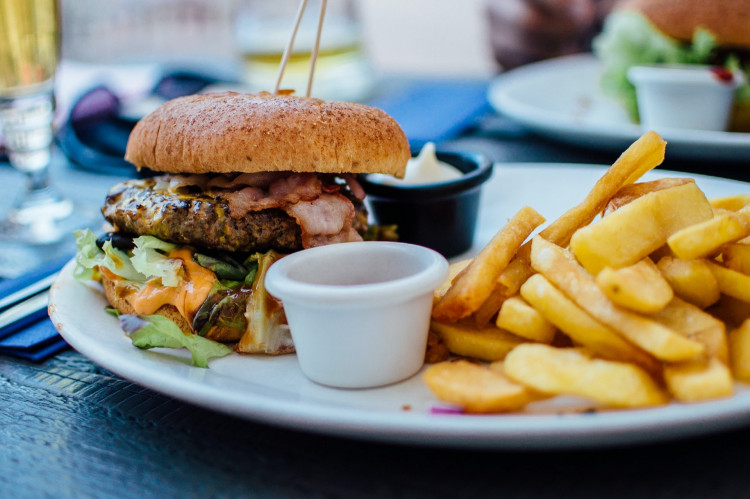Both an unhealthy lifestyle and genetic factors can increase your high cholesterol risk. High cholesterol is what happens when you have an unhealthy diet.
A diet rich in saturated and trans fats is one of the most significant risk factors for high cholesterol levels. That's because these foods affect how cholesterol is stored in your liver, allowing it to build up in your arteries.
Saturated fat is mostly found in fried foods like french fries; dairy products like cheese, butter, ice cream, and whole milk; and some meats like bacon, hotdogs, processed meats, and fatty cuts of pork and beef.
The U.S. Food and Drug Administration has also forbidden manufacturers from introducing artificial trans fat to packaged foods by 2020. However, some products may still contain partially hydrogenated oils containing these fats. If the total trans fat per serving is less than 0.5 the FDA requires food labeling to show zero trans fat.
These are the foods that may have trans fats:
- Baked goods like cakes and cookies
- Frozen pizza
- Microwave popcorn
- Other foods with fats and hydrogenated oils like coconut oil
Just 5 to 6 percent of the calories you eat per day must come from products that are high in saturated fats, the American Heart Association advises, and you should avoid trans fats fully.
It is important to get serious about making improvements to the lifestyle to reduce your cholesterol. In fact, many people can naturally, without medication, lower cholesterol in the following ways:
Make changes to your diet
To lower your cholesterol, it's important to eat a heart-healthy diet. For example, high-soluble fiber foods may lower your LDL cholesterol while high levels of omega-3 fatty acids in some seafood that lower your triglycerides.
Here are some goods that may lower your cholesterol levels:
- Lean proteins like fish and chicken
- Fish like herring, trout, and salmon
- Whole grains and oatmeal like barley and oat bran
- Fruits like strawberries, grapes, and apples
- Vegetables like okra, eggplant, and brussels sprouts
Research has shown that daily exercise helps to raise the body's amount of HDL cholesterol, stopping LDL cholesterol from piling up in your bloodstream and restricting your arteries. Workout also helps to reduce the triglycerides.
The recommendations point out that any level of physical activity has some health benefits, and is better than none at all.
If you think you have or might be at risk of high cholesterol, check in with your primary care doctor. You can also be referred to a cardiologist who can assess your overall cardiovascular risk, evaluate the cause of your elevated cholesterol, and prescribe a safe, reliable, and individualized treatment to reduce your cholesterol.






